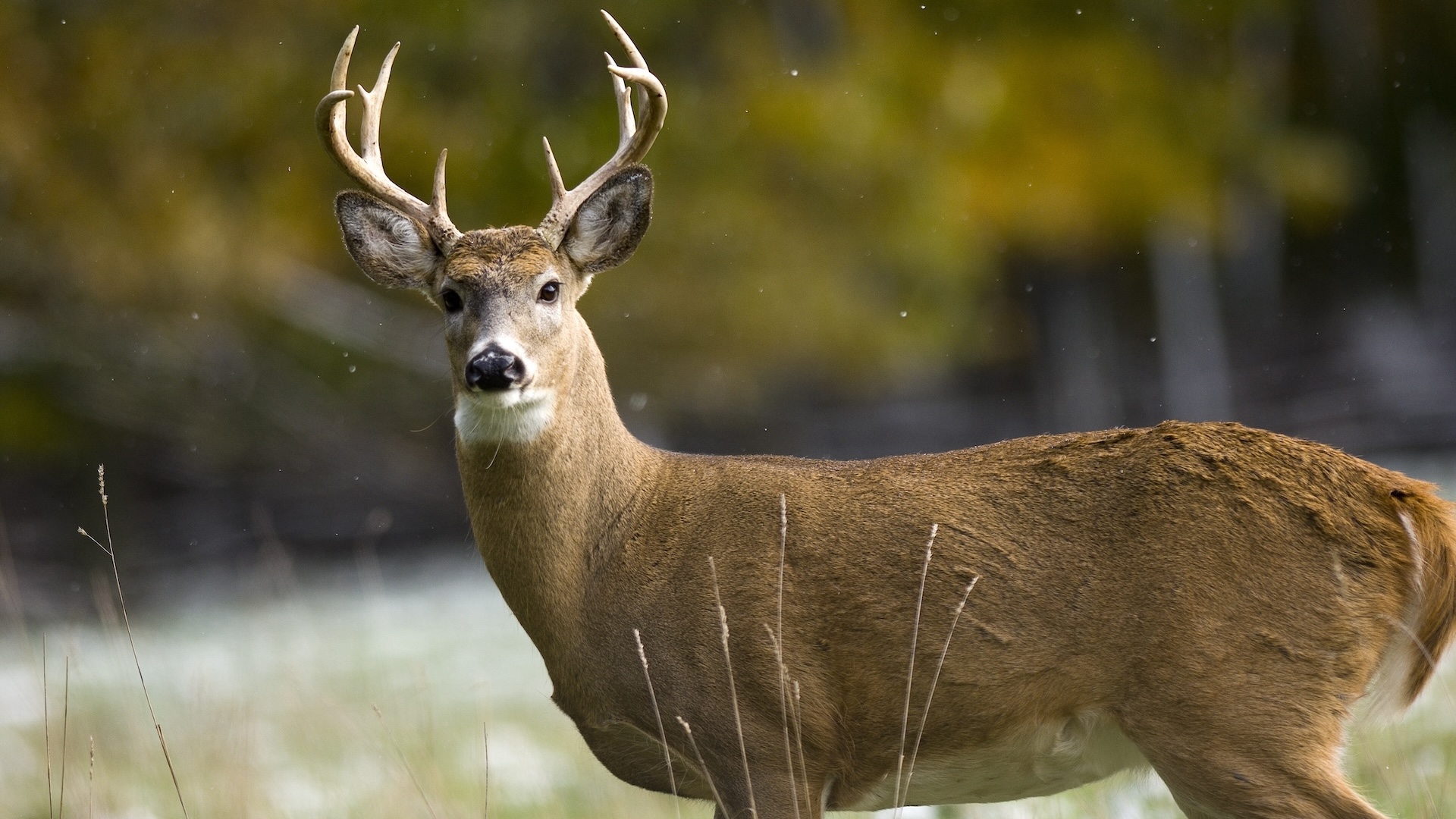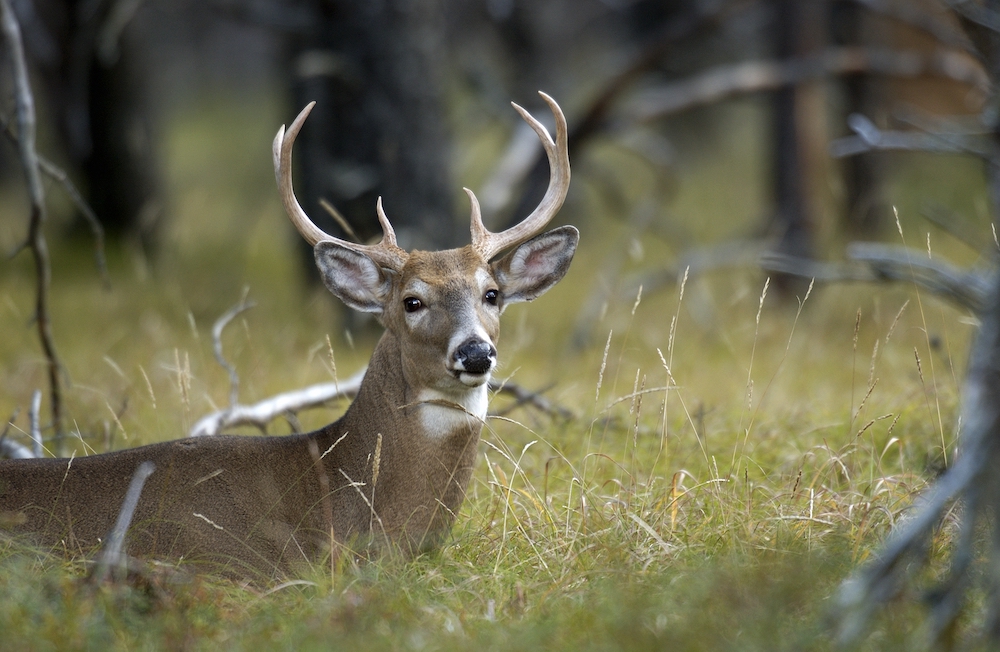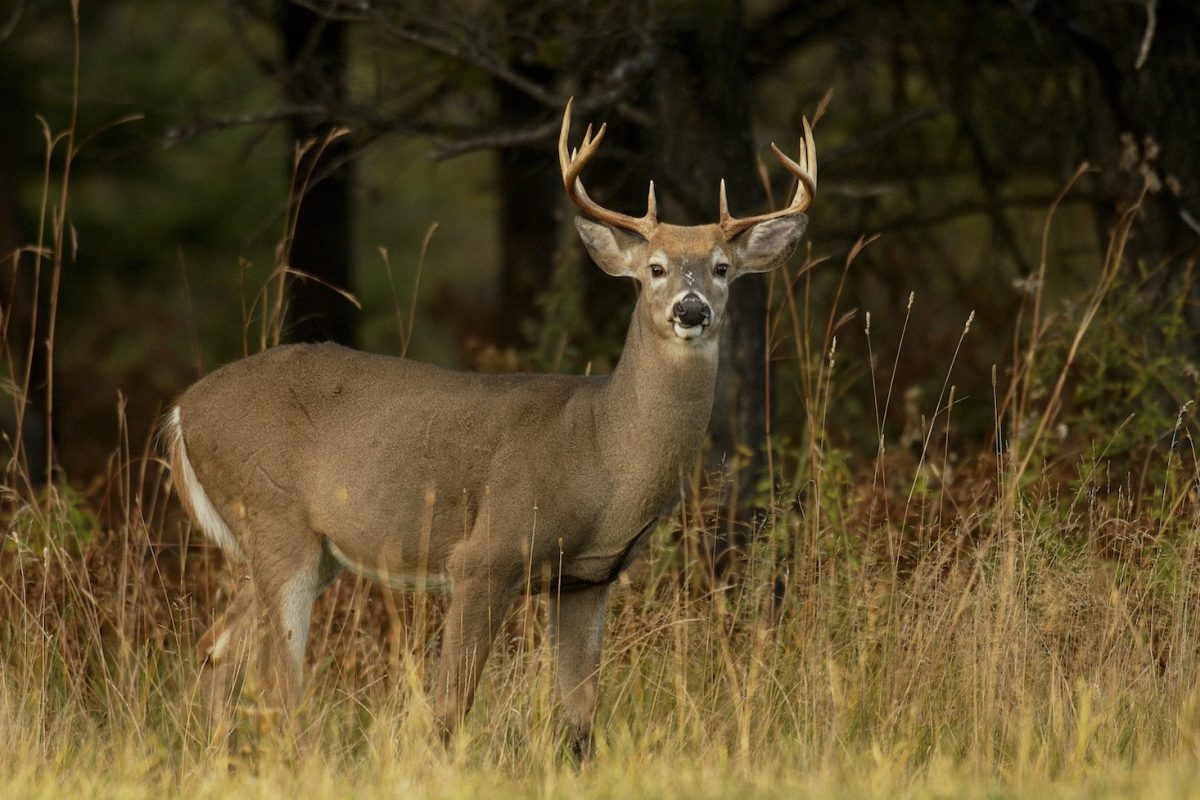What does major college football and deer hunting have in common?
You’ve likely never asked yourself that question. But here’s at least one answer: Both are major generators of revenue that benefits others who don’t partake in either activity.
That’s the analogy drawn by Chad Stewart, deer, elk and moose management specialist for the Michigan Department of Natural Resources, when asked to describe how important deer hunting is to the state’s overall conservation efforts.
“College football brings in money that athletic departments can use to support other sports,” such as non-revenue-generating tennis, swimming and track programs, he said.
“With our managed natural resources, deer are the same way,” Stewart said. “Deer are the college football of game management. There are a lot of species — as well as human activities — that benefit from deer hunting.”
That’s largely because the bulk of the conservation and wildlife management work that the DNR performs statewide is funded by hunting and fishing license sales — not general state tax dollars.
And deer season, by far, draws the most interest among Michigan hunters. About 550,000 of them are expected to take to Michigan’s woods and fields this firearms deer season, which began Nov. 15 and ends Nov. 30. That participation figure puts Michigan among the top handful of states nationwide, Stewart said.
Deer hunting takes place in each of Michigan’s 83 counties, including the less densely populated areas of metro Detroit.
With both the college football and firearms deer seasons in full swing in Michigan, coffers that are used for the greater good are receiving an influx of cash.
“Deer season is the single-biggest source of revenue for conservation activities that benefit everyone who enjoys Michigan’s outdoors, whether they hunt or not,” said Nick Buggia, who chairs the Michigan Wildlife Council, a nine-member, governor-appointed body charged with educating the public about the importance of management techniques — including hunting and fishing — to maintaining the state’s outdoor resources.
“In other words, you might call deer hunters the ultimate teammate when it comes to ensuring that Michigan wildlife remain in balance with their habitats,” Buggia said.
Bird-watchers, butterfly lovers and deer hunters — unite!
Proceeds from deer hunting and other license sales are used, for example, to ensure migratory birds have welcoming stopover habitat on DNR-managed properties such as the Pointe Mouillee State Game Area south of Detroit.
The area not only is the year-round home to a range of feathered and land-based species, but it also attracts hundreds of thousands of ducks, shorebirds and hawks that rest and feed during their migratory treks.
As a result, birds and waterfowl aren’t alone in flocking to Pointe Mouillee. “Bird-watchers definitely benefit from all the conservation work that takes place there,” Stewart said.
Similarly, efforts to create grasslands that pheasants like to live in also help promote the survival of butterflies that thrive in the same habitat, including the iconic and much-loved — but troubled — monarch, he said.
Deer hunting, however, is more than a moneymaker that funds conservation work. It’s also central to managing Michigan’s deer population, which, especially in the Lower Peninsula, has few natural predators.
Without legal, regulated hunting, far more deer would be roaming Michigan’s landscape — to the detriment of drivers’ automobiles, farmers’ crops and the state’s natural environment.
“There would certainly be far more potential of striking them with a car if we didn’t have hunting to help manage the herd,” Stewart said.
And considering that a single deer eats 8 pounds of vegetation per day on average, Michigan farmers also would have far less bountiful harvests.
In addition, given their appetite, an overpopulation of deer would spell bad news for the state’s woodlands. “Several studies have shown that when there’s an overabundance of deer, they will literally eat themselves out of house and home,” Stewart said.
The voracious eaters will strip bark, leaves and shoots off trees and decimate undergrowth that is important, protective habitat for songbirds and other species, he said.
By helping to keep the population in balance with its habitat, hunting also helps deer avoid the inhumane fate of starving during winter, when food is scarcer, Buggia noted.
“Some Michiganders are so attuned to the far-reaching benefits of hunting and fishing that they’ll buy licenses even if they’re no longer able to or simply prefer not to participate in either activity,” Buggia said.
“They seem to realize that anyone who takes advantage of state land for activities like hiking, bird-watching or mushroom hunting is seeing the results of conservation efforts that are possible because of hunters,” he said. “So in that way, hunters help make winners out of us all.”More information on Michigan wildlife management is available at HereForMiOutdoors.org.




